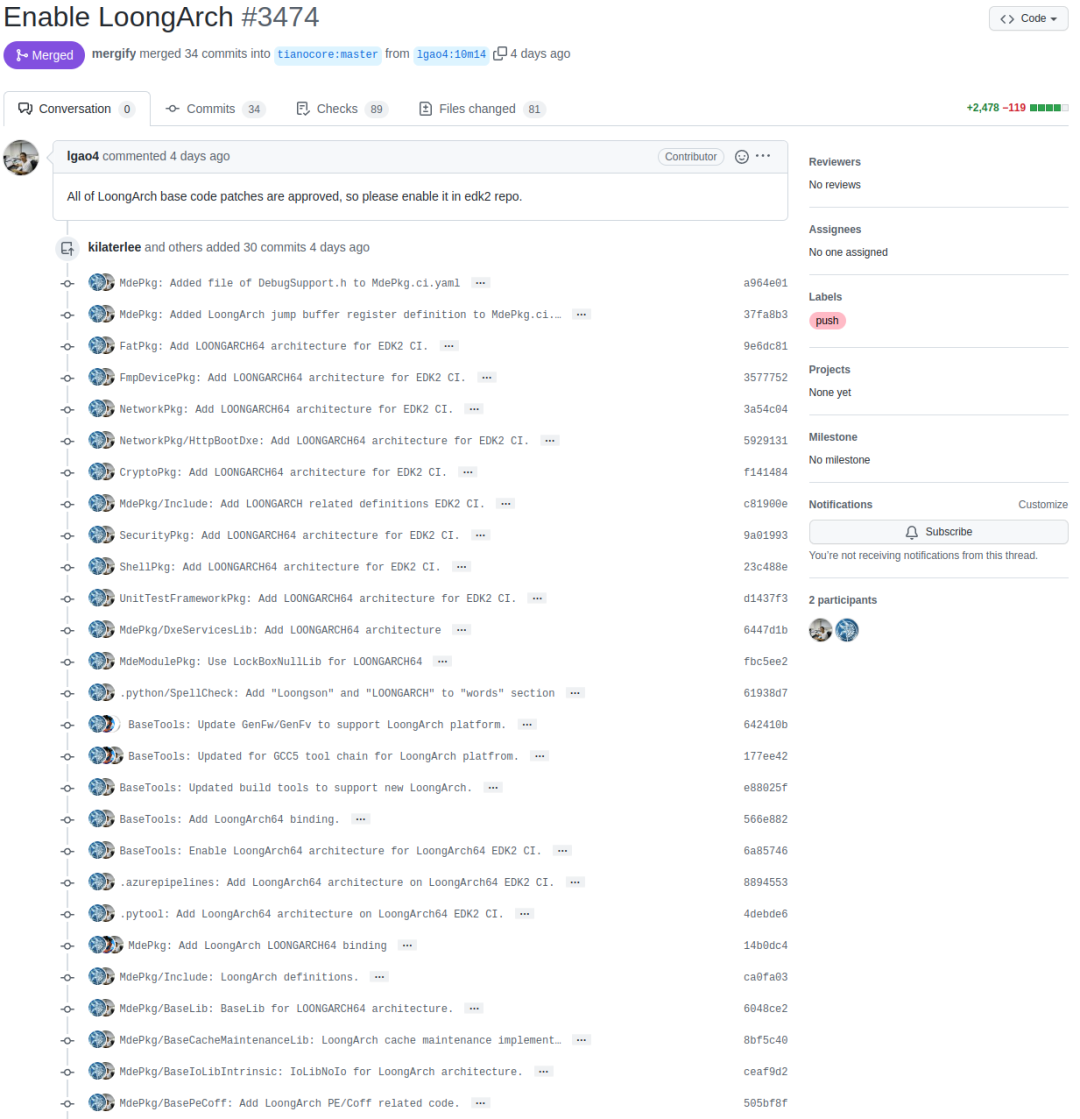News
LoongArch Fully Supported by UEFI and Completes Merging with Upstream TianoCore EDK2 Code
In early September 2022, the Unified Extensible Firmware Interface (UEFI) Forum announced comprehensive support for LoongArch64 and parts of LoongArch32 in Specification V2.10. Recently, Loongson's team merged the basic code of LoongArch with the UEFI upstream TianoCore EDK2. The integration enables LoongArch to enter the main branch of TianoCore EDK2, making LoongArch the fourth officially supported processor instruction set architecture (ISA) following X86, ARM, and Risc-V.

The basic code of LoongArch has been integrated into the main branch of TianoCore EDK2.
Unified Extensible Firmware Interface (UEFI) is a specification for personal computer systems. It provides an extensible firmware interface for Power-On Self-Test (POST), communication with operating systems, and connection between operating systems and hardware. TianoCore EDK2 is an official code implementation that adheres to the UEFI specification.
Significance of Code Merging
Direct access to the basic code of LoongArch for developers
After the code is merged, developers can access the basic code of LoongArch from an open-source community and directly compile the peripheral drivers of LoongArch, without the need to obtain the development environment from Loongson.
Open-sourcing of LoongArch virtual machines
On the other hand, the code merging will contribute to the open-sourcing of LoongArch virtual machines (VMs). Once the code LoongArch VMs is open-source, developers or users can access the code from the EDK2 community. After compilation, they can run the firmware of LoongArch VMs directly on popular general-purpose processor architectures in the industry, including LoongArch, X86, X64, AARCH64, etc.
Since SMBIOS supports LoongArch, Loongson Technology has coordinated with multiple device manufacturers to tackle fundamental technological problems and build a chain of independent innovation. Recognition from an official international organization underscores Loongson's determination to be open and the originality of LoongArch, which is significant for LoongArch to secure a better place in the firmware industry.
In the future, Loongson's team will keep track of UEFI and EDK2, make continuous contributions to TianoCore EDK2, and optimize LoongArch codes, so as to perfect the implementation of LoongArch on EDK2. At the same time, Loongson Technology also plans to binarize the codes of some LoongArch physical machines to better serve companies and individuals that develop the LoongArch ecosystem. Loongson stands ready to work with all developers and users to build an independent and open-source ecosystem.






